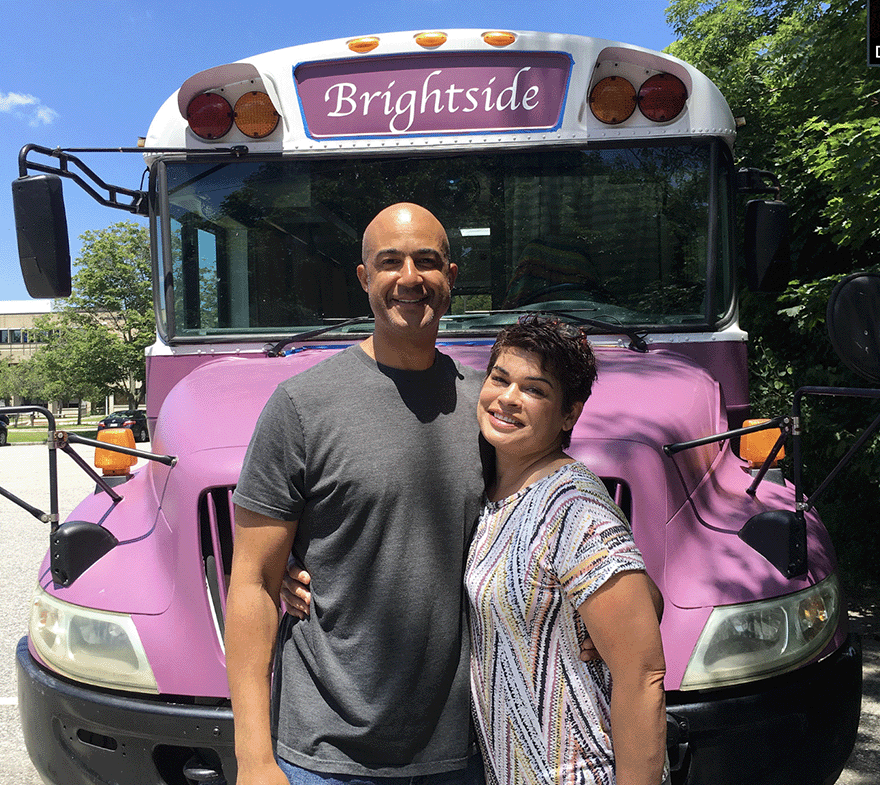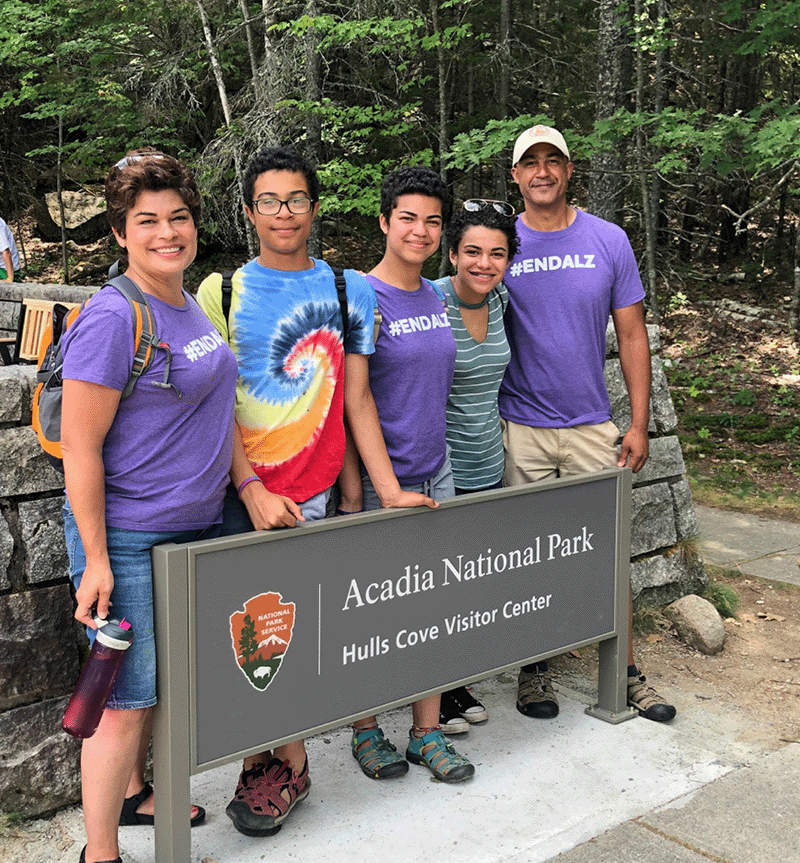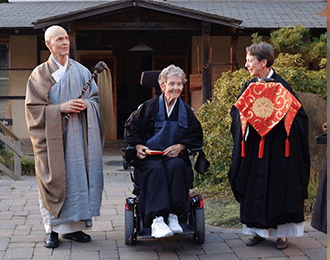55-Year-Old Father of 3 Has Alzheimer’s — and Travels with His Family to Inspire Others

People Updated for July 2021
Author: Diane Herbst
About five years ago, Jeff Craddock was in his late 40s and busy directing and editing films for his work at Harvard Business School. But his wife and colleagues started to notice a change. He’d forget to follow through on simple tasks at home or would ask a colleague a question, return to his desk and moments later ask the same question.
“This behavior seemed to be odd,” Elissa Carreras, Craddock’s wife, tells PEOPLE. “And so began our medical investigation.”
After leaving work on medical disability in late 2017, Jeff underwent months of testing before a neurologist delivered a shocking diagnosis in April of 2018: Younger-onset Alzheimer’s. He was 51.
“I remember just saying like, ‘Okay, I got it,’ ” says Craddock, now 55, of Medford, Massachusetts. “And then when we came back home, I went inside and dropped to the floor, and started to just cry a good while.”
With no family history, the shock was tempered by invaluable advice dispensed by Craddock’s neurologist: “I’d recommend that you look at your bucket list,” Carreras recalls the doctor saying, “and do what you want to do with your kids sooner than later.”
The couple had long wanted to visit national parks with their children, now 19, 16, and 14. So they bought a school bus, and with the help of $36,000 raised through a GoFundMe and other donors, converted it into a tiny traveling home, painted it purple in the signature color of the Alzheimer’s Association, which has been a source of invaluable support for the family, and named it The Brightside.
For five weeks in 2019, the family traveled throughout New England on the bus, along with their dog Macey, welcoming the curious. They spoke openly about Craddock’s diagnosis at every stop they made through Massachusetts, Vermont, New Hampshire, and Maine.
“It’s important for people to understand that just because you get this diagnosis, it’s not a death sentence,” says Carreras, a dog trainer. “We are not sitting around waiting for Jeffrey to die.”
While there are an estimated 6.2 million Americans with Alzheimer’s, approximately 200,000 to 640,000 of these men and women are under 65, according to the Alzheimer’s Association. For those in the early stages, memory loss is mild, but as the disease progresses, there is a loss of the ability to carry on a conversation, according to the Alzheimer’s Association.
For Craddock, who receives Social Security disability aid, the disease has not robbed him of the ability to remember names, and while he can converse, words sometimes elude him. When Carreras asked him about how much he enjoyed meeting people on their trip, he said, “People were amazing, um, just on, uh, um, what was it…”
Before Craddock was diagnosed, his wife had grown so angry and frustrated with his forgetfulness and inability to complete tasks, she thought they were headed towards divorce.
“He really became disengaged,” says Carreras. “He would ask me time and time again about what or when was that appointment; things that had been his responsibility in the household were not getting done.”
The diagnosis was “a prayer answered,” a means to finally understand her husband’s behavior. “He had not been behaving the way he was because of choice,” she says.
The family shared Craddock’s diagnosis with their church, and fellow parishioners at Grace Episcopal Church in Medford embraced them. “Our church community,” says Carreras, “has been a godsend for us.”
The social interaction and volunteering at church has helped keep Craddock’s symptoms from worsening, says Carreras, as have other preventative steps that include a structured day, a brain-healthy diet with lots of green vegetables, long walks with Macey and his children and a positive outlook.

It’s an optimism that’s been needed for some difficult times. When her then 14-year-old daughter was taking a reading comprehension test and read a passage about a man with Alzheimer’s who died within five years of his diagnosis. “My daughter got up from the test, went to the bathroom, and cried,” says Carreras.
To comfort the children when tough situations arise, “we say just because that might have been the situation for that man, it does not mean that it will be the situation for your father.”
Those with Alzheimer’s live an average of four to eight years after diagnosis, but depending on other factors can live as long as 20 years, according to the Alzheimer’s Association. “It’s hard to say how long someone is going to be living, because it affects everyone differently,” Monica Moreno, a senior director of the Alzheimer’s Association, tells PEOPLE.
Moreno adds that those living with Alzheimer’s can live very fulfilling, meaningful lives. “It’s part of who they are,” she says, “but it’s not all of who they are.”
“We’re going to focus on what it is we get to enjoy,” says Carreras, hopeful that a new therapy will soon be developed. “Why would we waste any of our precious moments worrying or preparing our children for something that may never happen?”
Back in the driveway in Medford, the purple Brightside bus awaits its next journey to the Grand Canyon. Carreras is already looking forward to spreading the word about her husband — and telling others that Alzheimer’s is not just a disease of the aged.
“We can control how we respond,” she says. “We’re hoping to inspire people to live a brain-healthy lifestyle today.”





